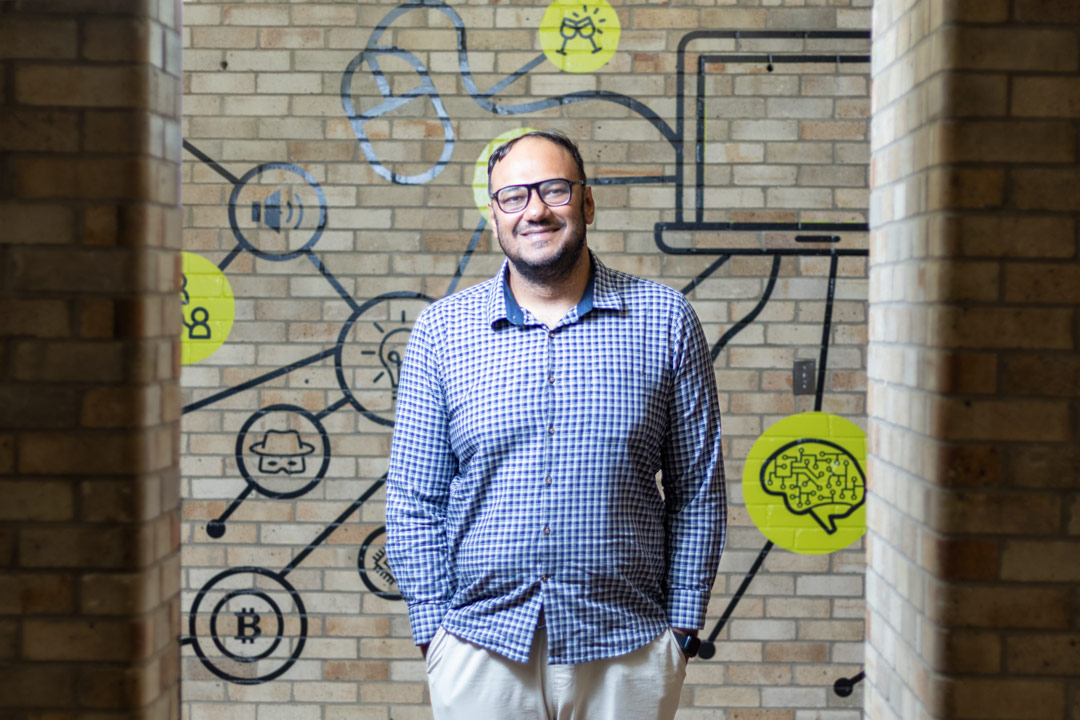Science
AI Researcher Tackles Cancer Detection with Explainable Models

Dr. Sakib Mostafa, a researcher at Stanford University, is pushing the boundaries of artificial intelligence by developing models designed to enhance cancer detection. His work, which builds on his graduate studies at the University of Saskatchewan (USask), addresses the pressing issue of explainable AI. This is essential not just for the effectiveness of AI systems, but also for ensuring they are trustworthy in critical fields such as healthcare.
Mostafa’s fascination with technology began in childhood in Bangladesh, where films like *The Terminator* and the writings of Jules Verne sparked both curiosity and apprehension. “I’m the kind of person who really likes to face the fear rather than running away from it,” he explained. This mindset motivated him to pursue a PhD in computer science, culminating in his recent post-doctoral fellowship at Stanford.
Many AI systems, particularly those based on deep learning, are often described as “black boxes.” These models process data in ways that remain opaque even to their creators. As Mostafa noted, “Once you have a result from an AI model, if you try to go backwards to figure out how the input data was used to get that result, it’s just not possible.” This lack of transparency can lead to significant risks, particularly in high-stakes environments.
During his PhD studies, Mostafa encountered a striking example of this issue while working on a model that classified plant diseases. The team initially believed the AI analyzed multiple features of the images, only to discover that it focused solely on the edges of the leaves. This highlighted the importance of understanding the decision-making processes of AI systems. “If we are to trust AI, we also need to understand how and why it makes decisions,” he emphasized.
The implications of this work are profound, particularly as AI tools are increasingly integrated into healthcare. Mostafa’s current research in the Department of Radiation Oncology aims to develop AI tools that will assist in diagnosing cancer by analyzing various data types, including genomics and medical imaging. His goal is to create a system that not only detects the presence of cancer but also identifies its stage and type, potentially improving diagnostic accuracy and patient outcomes.
“What I found out during my PhD studies was that if we create an explanation of a model, we can improve the model,” Mostafa said. By understanding which data influences AI decisions, researchers can refine the models to enhance their performance. This approach could lead to a groundbreaking system capable of identifying patterns that traditional diagnostic methods might overlook.
If successful, this innovative AI tool could be piloted at Stanford Hospital, marking a significant step towards integrating AI into routine medical practice. “That’s the end goal for us,” Mostafa stated. His gratitude towards USask is evident as he reflects on his journey. “The University of Saskatchewan gave me so many opportunities and helped me become who I am today.”
Mostafa’s journey from Bangladesh to Stanford is a testament to his resilience and dedication. After completing his PhD at USask, he conducted a post-doctoral fellowship at the National Research Council of Canada, where he applied AI to develop climate-resilient crops. Ultimately, his passion for using AI to improve human health led him to his current focus on AI-assisted medicine.
For Mostafa, being at Stanford feels surreal. “I grew up hearing of places like Stanford but hardly believing they were real,” he shared. His story exemplifies how commitment to understanding and addressing fears surrounding technology can lead to transformative advancements in critical fields like healthcare.
-

 Science3 months ago
Science3 months agoToyoake City Proposes Daily Two-Hour Smartphone Use Limit
-

 Top Stories3 months ago
Top Stories3 months agoPedestrian Fatally Injured in Esquimalt Collision on August 14
-

 Health3 months ago
Health3 months agoB.C. Review Reveals Urgent Need for Rare-Disease Drug Reforms
-

 Technology3 months ago
Technology3 months agoDark Adventure Game “Bye Sweet Carole” Set for October Release
-

 World3 months ago
World3 months agoJimmy Lai’s Defense Challenges Charges Under National Security Law
-

 Lifestyle3 months ago
Lifestyle3 months agoVictoria’s Pop-Up Shop Shines Light on B.C.’s Wolf Cull
-

 Technology3 months ago
Technology3 months agoKonami Revives Iconic Metal Gear Solid Delta Ahead of Release
-

 Technology3 months ago
Technology3 months agoApple Expands Self-Service Repair Program to Canada
-

 Technology3 months ago
Technology3 months agoSnapmaker U1 Color 3D Printer Redefines Speed and Sustainability
-

 Technology3 months ago
Technology3 months agoAION Folding Knife: Redefining EDC Design with Premium Materials
-

 Business3 months ago
Business3 months agoGordon Murray Automotive Unveils S1 LM and Le Mans GTR at Monterey
-

 Technology3 months ago
Technology3 months agoSolve Today’s Wordle Challenge: Hints and Answer for August 19









